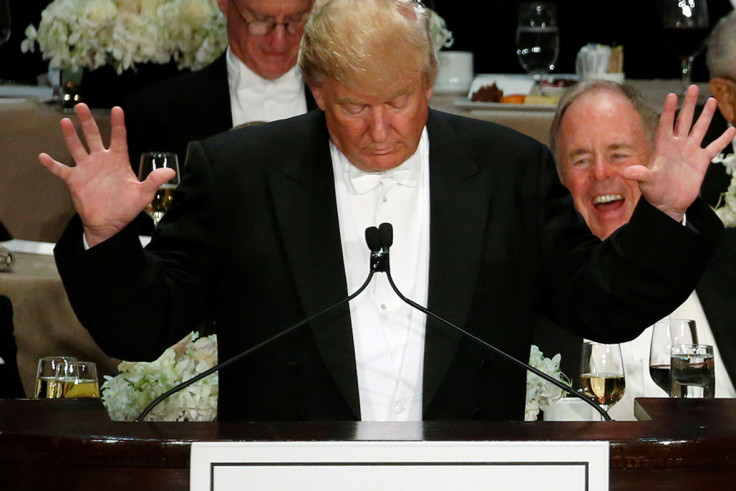Donald Trump has turned this election into a Jerry Springer-esque freak show - and it is working
The candidate's outrageous statements are winning voters over in key swing states.

When a small child is losing the game, against more grown-up opponents, they will often start to change the rules, lash out at all and sundry, become really rude to whoever is winning and then claim they didn't want to win anyway. Donald Trump is that toddler. And it's dangerous.
By refusing to agree to accept the result, after a week of dark allegations of rigging, following his threat, in the second Presidential debate, to jail his opponent, and by virtue of a series of allegations about his personal behaviour, Trump has turned the election into the worst kind of Jerry Springer, bear-baiting, freak-show. And, despite what the polls say now, it will bring him a lot closer to the Presidency than anyone should be entirely comfortable with. Hillary Clinton especially.
The national conversation in the US election is no longer about politics, it's about personalities and behaviours, and so long as Trump keeps it there, he is stronger.
To see how much Trump had shifted the rules, the social media analysis company Impact Social looked at social media conversations in the key swing state of Florida, looking at 50,000 posts on open news forums, and social media, removing media and political commentators. Florida, which had been neck-and-neck in the polls and has 29 electoral college votes. It's a key battleground.
After this week's TV debate, 58% of conversation was more favourable for Trump, compared to 31% for Clinton. This is the first time Trump has been ahead in Florida following any of the three debates. Whatever happens, people find him compelling viewing and his mastery of the soundbite, the glib quip, means that his utterances dominate TV and radio bulletins and still drive the conversations. The one-liner pushes more awareness than any policy discussion ever could.
Clinton offers competence and insider knowledge, those two beacons of inspiration and hope. 'Bring me your huddled masses because I know where the toilets are in this place.'
Which means it's perfectly possible that a 'relatively' controversy-free period for Trump could start to erase the embarrassment factor in voting for him. Anyone who owns that amount of positive conversation can expect those poll leads to begin to narrow. Throw in a shy Donald vote and suddenly Hillary's desired control of either House – let alone the Presidency – begins to evaporate.
Hillary Clinton, after all, is a deeply uninspiring candidate. Were she up against any 'credible' Republican, in the 'normal' sense, she would be floundering by now. Never mind the nonsense about her health, or even the serious misjudgements about her email security. She's just dull. Beltway-insider, been-around-the-block, where's-the-vision dull. She offers competence and insider knowledge, those two beacons of inspiration and hope. 'Bring me your huddled masses because I know where the toilets are in this place.'
She may become the first woman President, but she'd be the most familiar 'new thing', US politics has ever seen.
But how did we get here and to what extent is the electorate to blame? Impact Social's analysis of the nature of the debate shows worrying signs. Looking at an amalgamation of the social media conversations after all three debates in Florida, the conversation is entirely tribal, about the personal merits (and otherwise) of each candidate. It's a mud-slinging competition of ritualistic abuse with positions of support and attack taking up over three quarters of all conversation. Policy discussion takes up a miserly 15% of the chatter. And almost all of that (80% of it) is about previous policy positions – mostly Clinton's actions in government. Almost none is about what a future president would actually do.
That's where it becomes dangerous. American democracy has become a slanging match where no-one knows what either possible President actually stands for, and no-one even seems to care. The likely winner offers no vision; the likely loser offers no guarantee he will accept the result.
Out of that little lot will come a nation wholly ill at ease with itself, with huge chunks of the population feeling unrepresented and untrusting of their leaders and perhaps unwilling to accept their authority. In such a situation, the threat of civil unrest can never be far away. In short, America is making a very good case against democracy.
The Plato quote that 'One of the penalties for refusing to participate in politics is that you end up being governed by your inferiors' may never have been truer. An electorate which treats the election as a test of personality, not of politics, may soon find itself been governed by mediocrities.
Jimmy Leach is a digital consultant, working on platforms and communications for governments, corporations and start-ups.
© Copyright IBTimes 2025. All rights reserved.






















